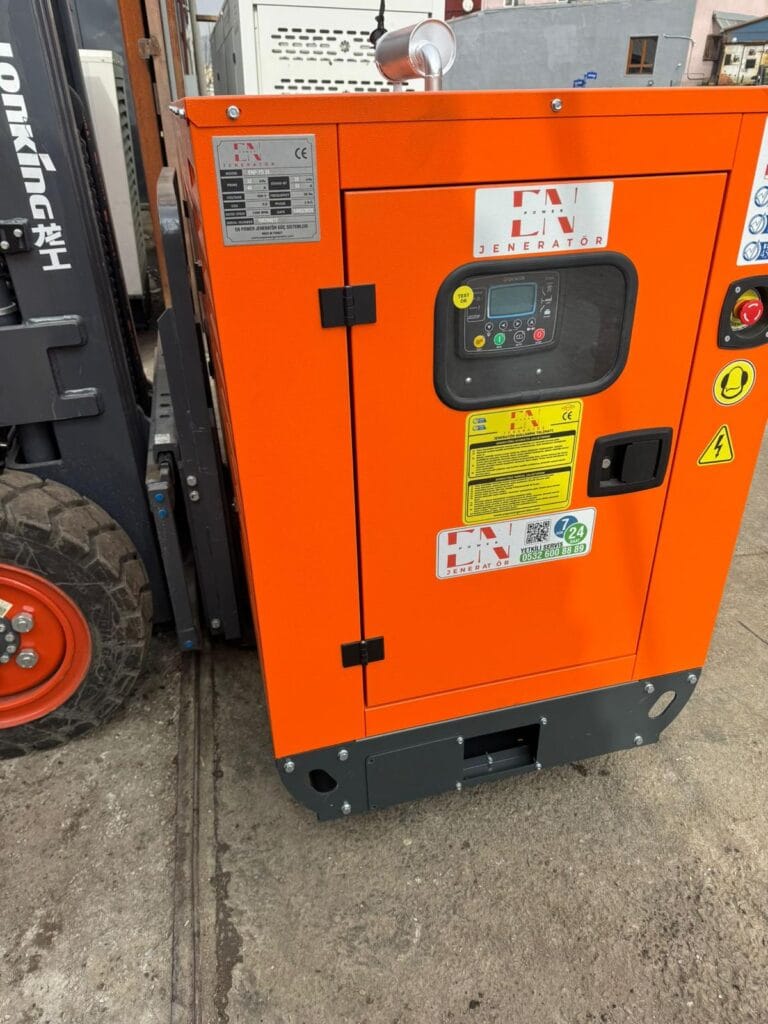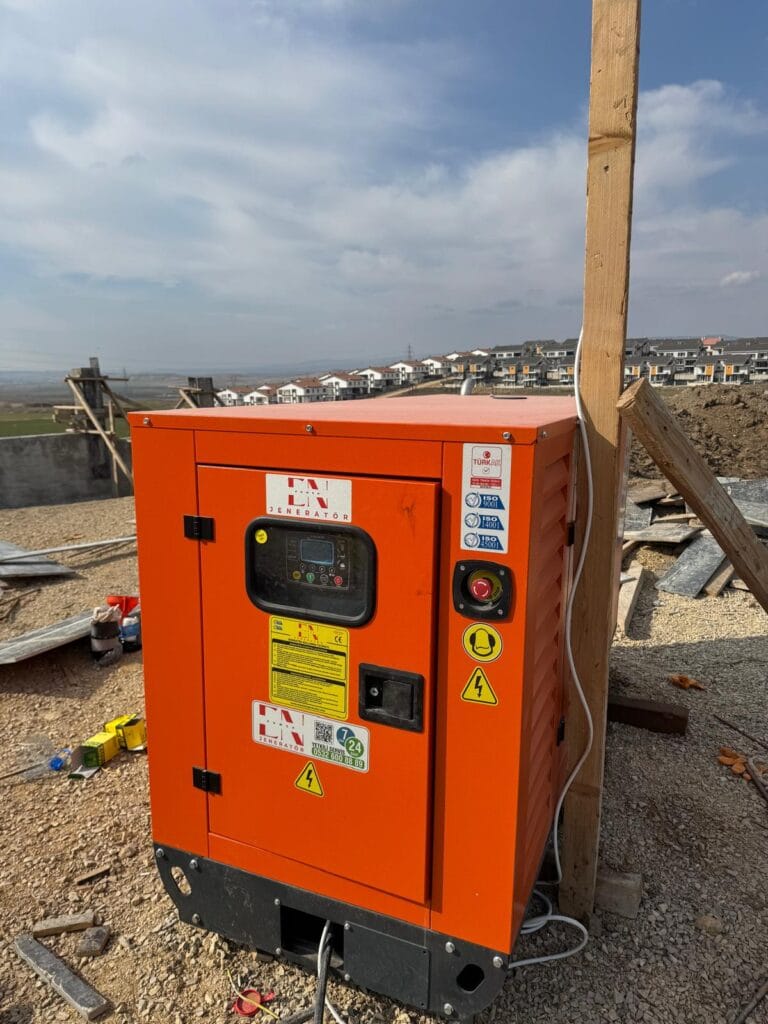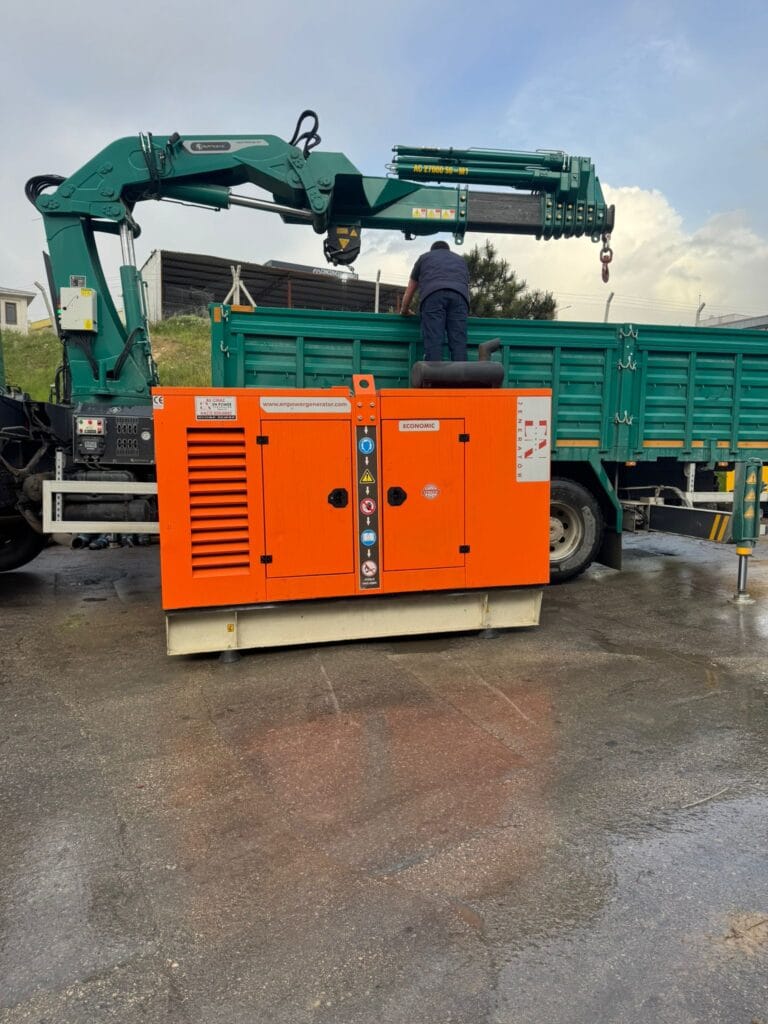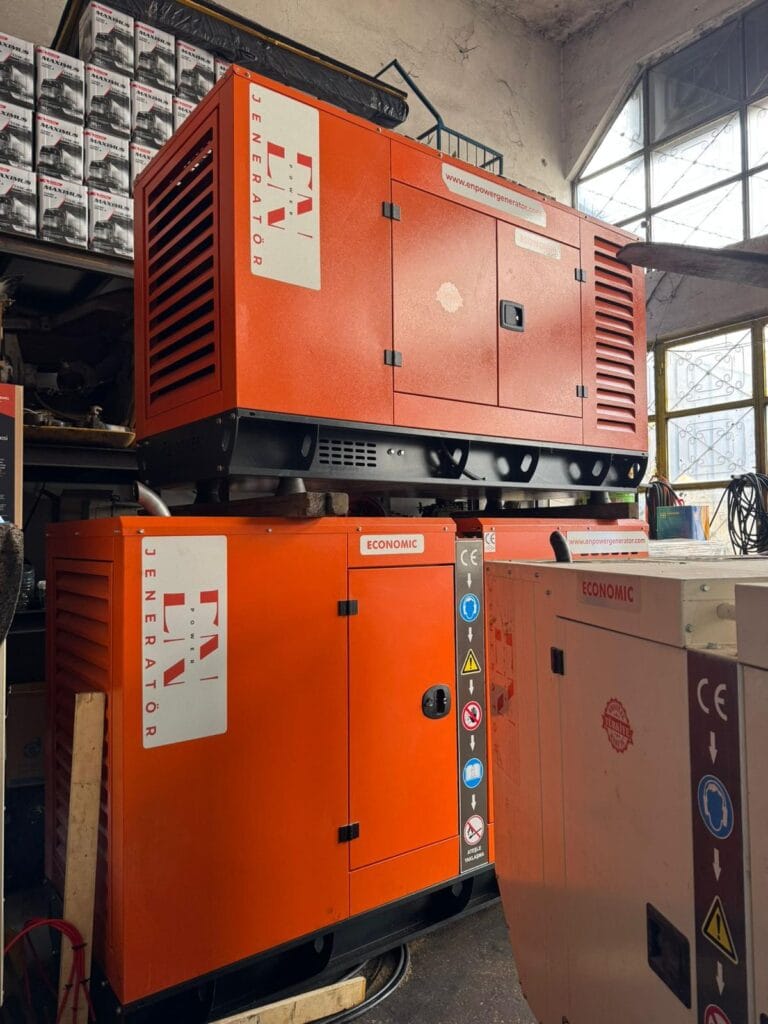What is a diesel generator?
Diesel generators are machines that convert mechanical energy into electrical energy using diesel fuel. They typically consist of an engine and an alternator. The engine burns diesel fuel to produce rotational motion, which is converted into electricity by the alternator.
Basic operating principle
Diesel engines are internal combustion systems. The fuel and air mixture is compressed under high pressure, which ignites the engine. The resulting energy drives the generator’s alternator, generating electricity.
Differences from gasoline generators
The most significant advantages of diesel generators compared to gasoline generators are lower fuel consumption, longer engine life, and less maintenance. They are also preferred in industrial applications because they operate more stably under heavy loads.
General features of diesel generators
To understand why diesel generators are preferred, it’s important to review their basic features:
- Engine Structure: Heavy-duty engines are used. These engines are known for their durability.
- Fuel Type: Only diesel fuel is used. This provides higher energy efficiency.
- Energy Production Capacity: Models are available in a wide range of power levels, ranging from 5kVA home generators to industrial models over 2000kVA.
High efficiency and durability
Diesel generators provide high efficiency, especially for long-term use. It provides users with confidence thanks to both its energy production capacity and low failure rate.
Continuous operation capacity
These generators can operate continuously for hours, even days. This feature is a significant advantage, especially in locations requiring uninterrupted power, such as hospitals and data centers.
Performance in harsh conditions
Diesel generators can operate stably even in extremely hot, humid, or dusty environments. This makes them indispensable for demanding jobs such as construction and mining.
Low fuel consumption
One of the most significant advantages of diesel generators is their low fuel consumption. This provides significant cost advantages, especially in the long run.
Economical operating principle
Diesel engines have higher thermal efficiency than gasoline engines. This means more energy is produced with less fuel. Consuming less fuel to produce the same power significantly reduces operating costs.
Advantage in long-term use
Low fuel consumption is even more important in places where continuous energy is needed (for example, hospitals or industrial facilities). Every liter of fuel consumed during power generation directly impacts the operating budget.
Long-lasting use
Diesel generators, thanks to their robust construction, can be used safely for many years.
Low maintenance requirements
Diesel engine components are generally more durable and do not require frequent maintenance. This saves the user time and labor. Interventions other than periodic maintenance are rarely required.
Part life and service intervals
The parts used in diesel generators have a longer lifespan because they are manufactured from higher-strength materials. Maintenance and parts procurement are also quite easy thanks to the extensive service network.
The ideal solution for emergencies
Power outages can bring life to a standstill. This is where diesel generators come in.
Quick start-up during power outages
Modern diesel generators automatically start during a power outage. This allows production, services, or domestic activities to continue without interruption.
Use in healthcare and industrial facilities
Power outages are unacceptable in facilities with critical infrastructure, such as hospitals. Therefore, diesel generators are preferred due to their reliable and continuous power supply.
Environmental advantages of diesel generators
Traditionally, fossil fuels are not considered environmentally friendly; However, thanks to technological advancements, diesel generators operate cleaner.
Less carbon emissions
New-generation diesel engines emit significantly fewer harmful gases than older models. Models that comply with EURO 6 standards, in particular, are among the environmentally friendly alternatives.
Noise level management
Quiet-running diesel generator models are especially preferred in residential areas and offices. With their sound insulation and low decibel levels, they provide a comfortable and environmentally friendly environment.
They do not disturb the environment.
Easy portability and installation
Diesel generators can be used not only in fixed locations but also as mobile solutions.
Mobile generators
Trailer-type portable diesel generators provide great convenience, especially for construction sites, outdoor events, or temporary power needs.
Integration in fixed systems
They can be easily integrated into home or building infrastructures. When used with automatic start systems, the system automatically activates in the event of a power outage.
Industrial and residential uses
Diesel generators, thanks to their wide range of applications, appeal to both large-scale businesses and individual users.
- Construction sites: As an energy source in areas where the electrical infrastructure is not yet complete.
- Homes and small businesses: As a backup energy provider in case of power outages.
Low operating costs
Although the initial investment cost may seem high, the long-term operating costs of diesel generators are quite low.
- Balance between fuel consumption and cost: Thanks to low fuel consumption, fuel costs are minimized over time.
- Long-term savings: Thanks to long-term use, low maintenance, and fuel efficiency, the return on investment is quite long.
A reliable energy source
Diesel generators provide energy security, especially in critical areas.
Reducing dependence on the electricity grid
Especially in rural areas or areas with weak infrastructure, diesel generators reduce external dependence.
Providing uninterrupted power
Power continuity is crucial in places like data centers, healthcare facilities, and military bases. Diesel generators act as insurance in such areas.



